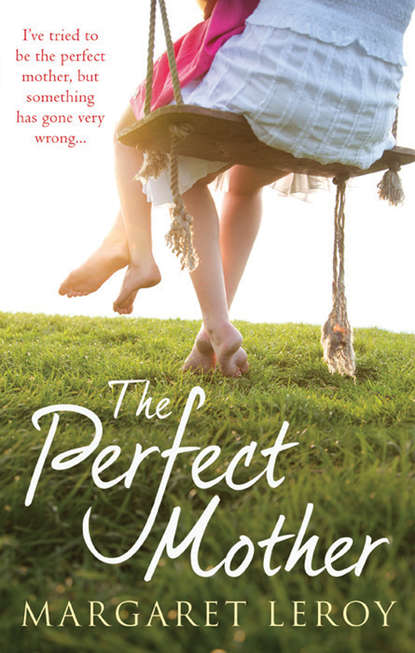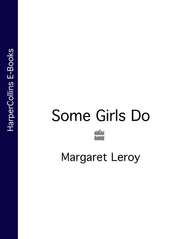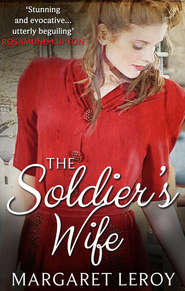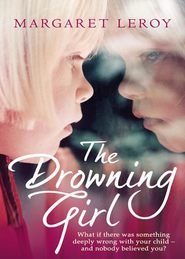По всем вопросам обращайтесь на: info@litportal.ru
(©) 2003-2024.
✖
The Perfect Mother
Автор
Год написания книги
2018
Настройки чтения
Размер шрифта
Высота строк
Поля
‘I’m going to tell,’ she said, through her coughs. ‘What it’s like here. What he does, that motherfucking bastard.’
‘No,’ I said. ‘You mustn’t. You can’t.’
‘Just watch me,’ she said.
Her social worker from the Civic Centre, Jonny Leverett, was a pallid man who wore heavy-metal sweatshirts. The next time he came, he took her out in his Skoda, and they were gone for hours.
‘Well?’ I said, when she came back.
‘I told him,’ she said. Tearing at the skin at the sides of her fingernails. ‘They’ll have to do something now. They’ll have to come and get Megadeath. They’ll have to lock him up. Life would be too short for him.’
Two days later there was a case conference in the staffroom. The car park was full of smart cars and Lesley served coffee in the china cups that were kept for visiting professionals. Jonny Leverett came to take Aimee in.
I was watching television when she found me.
‘I’m going to Avalon Close,’ she said. Defiant still, but her eyes were far too bright.
‘You can’t be,’ I said. ‘For Chrissake, they’re all nutters in there.’
She shrugged. ‘It’s got to be better than here.’
She kicked a Pepsi can that was lying on the floor, sent it ricocheting across the room, her flaming red hair flying. But I could see she was frightened: there was shaking at the edges of her smile. I’d never seen her frightened.
‘What about Megadeath?’
‘They didn’t believe me,’ she said.
The day she went, she cut her wrists—with the blade she’d kept for emergencies. Lesley told me, when I got back from school. She was all right now, said Lesley, they’d stitched her up in Casualty. Lesley said not to worry too much about her, that Avalon Close would be right for her as she clearly needed help.
I think back to that sometimes. I try not to, but I still do, even now. Because I know there were things I could have done to help her. I could have gone to the police or phoned the Civic Centre and told them Aimee was telling the truth—that someone was lying, but it wasn’t her. I didn’t have the courage. Only silence seemed safe.
I missed Aimee terribly. What I could bear before, I couldn’t bear without her. Sometimes when I’d wake in the night, I’d think for a moment she was there in the other bed beside me; then with a lurch of cold I’d see it was Jade Cochrane, my new roommate—who was sad and mousey and never laughed at all.
My mother came again. She had a dark tan and new jewellery. She brought me an extra-big rabbit, with a satin heart on his chest that said ‘Yours 4 Ever’.
‘Thanks,’ I said.
‘I was going to wrap it up,’ she said, ‘but I didn’t have any paper.’
She was excited, skittish, pleased with herself. She smelt of alcohol but I didn’t think she was drunk. She looked different. This was it, I knew. At last. The time had come.
‘I’m living with Karl now,’ she said. ‘He comes from Dresden. I always did like a man with a nice accent. Karl’s an entrepreneur.’ She pronounced this carefully. ‘We’ve got a new flat in Haringey.’
‘I can come and live with you, then,’ I said.
‘Just give me a bit of time,’ she said. ‘Karl and me have got to get ourselves sorted. We’re just getting the flat together.’
Afterwards Lesley sat on my bed, asked how I was feeling. Really, I thought, she doesn’t need to bother any more, I won’t be here much longer.
‘My mum’s all right now,’ I said. ‘She’s got this flat with Karl. I’m going to go and live with them. Any day now.’
Lesley put her arm round me. Her voice was gentle, hesitant.
‘Catriona, my love, that’s not what she’s saying to us.’
My mother never came again.
They tried to get me foster parents. They were going to advertise in the Evening Standard, they said.
Lesley took the photograph with her smart new Polaroid.
‘Smile!’ she said. ‘Give me a lovely big smile. That’s wonderful—you look like Meg Ryan.’
I stood there, smiling my most important smile ever. I tried to make my whole self smiley, the corners of my mouth ached with smiliness.
Lesley showed me the ad. It said, ‘Catriona is a bright, pretty teenager with a real artistic talent. Her record of school attendance is excellent. Because of her troubled past, Catriona can be rather demanding at times. Catriona needs firm and consistent parenting.’
I thought about this, lying in bed at night in the orange light of the streetlamps, chilly under the candlewick, missing Aimee. I let myself think, just for a moment, about my foster family, what they might be like: nice food and lots of it, gentleness, and a soft bed with a duvet that tucked in at the back of your neck. And I wondered what it meant to be demanding.
No one was interested; no one even enquired about me. No one wants to adopt a fourteen-year-old girl who can be rather demanding, however bravely she smiles. I told myself I’d never thought it would happen, really, but there was a messy secret shame in admitting that I’d hoped.
I left the day I was sixteen. Two months before my birthday, Kevin from the Leaving Care team came to see me. My mother had been asking about me, he said. She’d moved abroad but she wanted to make contact, and did I want to see her. I said I didn’t, really. It was my decision, he said. He sorted out my benefit, found me a flat above a chip shop in Garratt Lane, and a furniture grant from a charity.
My birthday was Lesley’s day off, but she came to say goodbye. She held me close for a moment, a quick, hard, awkward hug. It embarrassed me; I wanted her to let go of me. But then, when she’d let go of me, I wished that she’d hold me again.
‘I hope you get them,’ she said. ‘Your wishes, the things you wanted. I’m wishing them for you, too.’
That evening, in my flat in Garratt Lane, I sat at my flimsy new table and such loneliness washed through me, and I briefly longed to be back at The Poplars, just to have people there.
But slowly I put some kind of a life together. I did some temping—I’d learnt to type at school. There were always boyfriends. I guess I was attractive enough: I wore my skirts short and my blonde hair long and did whatever they wanted. I used to worry that my clothes, my skin even, stank of the chip shop, but the men didn’t seem to care. I was, I suppose, promiscuous: I needed company in the evenings; I could only sleep through the night with somebody beside me. And if some of them were married—well, I reckoned, that was their responsibility. I never told them about myself and if they asked I made up something, recasting my life as unexceptional. After a month or two they usually drifted off, sensing I guess something in me that would for ever elude them. But from time to time there’d be one who said he loved me, and then I’d stop returning his calls, or say I was washing my hair, and after a while, he’d drift away, however keen he’d been.
Sometimes I thought I’d ring Kevin, and go and find my mother. I’d start to picture a reconciliation: her welcome, her apology, wrapping me in her arms and her scent of Marlboros and lily of the valley. But then I’d think how she’d neglected me and lied to me, and such rage would flare in me, and I knew I wouldn’t do it. So the days dragged on: a life of offices, all looking much the same, and vaguely unsatisfactory sex that was paid for with meals at Pizza Express and shots of tequila. It was lonely, but it was better than I was used to.
There are moments when everything changes. I believe that. Moments of destiny, of serendipity. And one hot summer evening much like any other, when I’d just got off the bus in Garratt Lane, I bumped into Miss Jenkins.
‘Catriona. What a nice surprise.’
She still had the hoops and the hippy cardigan, and she seemed so pleased to see me. She asked what I was doing. I shrugged a little, told her about the temping, though not the men.
She stood there for a while, her steady eyes on me. There was this school, she said. A nursery school, in Chelsea: private, expensive. Not really the sort of thing she approved of: nursery education ought to be free for everyone. But the headmistress was a friend of hers, they’d been at college together, and she happened to know they had a post going. I reminded her that I only had three GCSEs. She said it didn’t matter, it was a nursery assistant post, they needed someone who could help with the art. The reference wasn’t a problem, she said, she’d be more than happy to be my referee. I felt cool air against my face; I remember that, a sudden shift in the weather. We neither of us had anything to write on, so I borrowed her biro and scribbled the number on the back of my hand.
CHAPTER 10
The school was in a hushed street off King’s Road. There was a cottage, old and rather crooked, at the turn of the road, and a little arched door in the wall. I rang and the door opened: children’s noise rushed out into the stillness of the street. Miss Parry, the headmistress, introduced herself; she was tall, gangly, flatfooted as a heron, with vivid bird-like eyes. She took me through the cloakroom, where every peg had a different hand-painted picture—a duck, a tulip, a blue umbrella. This amazed me, the generosity of it, such detail lavished on every child, every name. And we went through the airy playroom, and out into the garden at the back, a storybook garden, a secret between high walls, with a labyrinth of twisty stone paths and trampled scraps of lawn, and, in the middle, steps down to an old well—now filled in, of course, said Miss Parry—where there grew an old catalpa tree with leaves as wide as hands; and over there by the sandpit, she said, the two mossy stones set into the lawn were Carolingian graves. The whole place was exuberant with children, and messy with the tumbled detritus of their play, plastic animals faded by the sunlight, and the tyres and boxes and blankets they used to make castles and dens; anarchic and disorderly, but the disorder held and contained by the walls of yellow London brick, and the narrow bright beds of hollyhocks and lupins that fringed the edges of the garden.
She showed me round, asked a few obvious questions, then left me in the playroom to see what I’d do. Cast adrift in that sea of children, I did what made me feel safest, and sat in the art corner drawing extravagant pictures, of flamboyant animals with wings and wicked fangs. The children gathered round, adding their own details, colouring in. After a while my self-consciousness fell away. I was surprised to turn and see Miss Parry behind me. She reached out to touch a doleful tiger I’d drawn. ‘I think you’ll do quite nicely here,’ she said.
It wasn’t perfect. There was a lot of drudgery, toilets to be cleaned, floors to be swept and swabbed, little plastic bits of things to sort and put back into boxes. And it was physically exhausting, particularly demanding perhaps because it was so unstructured, all these children who tugged at your sleeve with their urgency and demands. The pay was minimal—enough to pay the rent on my flat and to buy a bit of food, though mostly I lived on what I ate at the nursery, the lunches of sausage or stew followed by jelly and bland glossy custard; and just about enough for mascara, and bleach for my long hair, and occasionally a new pair of clingy jeans or a faded knitted top with rainbow beading from one of the second-hand stalls in King’s Road market. But mostly I was happy there. I found I had a skill with children, that I could join in their play, enter their worlds: I don’t know where it came from, this easy instinctive ability—it seems surprising given the fractured nature of my childhood. But for me there was something so satisfying in the company of these children, with their openness and freshness and unanswerable questions. Where was I before I was born? Are the birds cross? Why do winds in cartoons have faces? Maybe I had some sense that this was what I needed—these years spent eating toad-in-the-hole and playing and reading picture books in a place that was kind and generous, where every child was so precious they had their very own picture next to their peg. It was perhaps a kind of healing for me: a reliving or a recovering of childhood.









